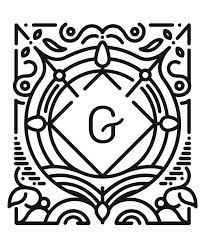
It’s now been six months since WordPress released the Gutenberg editor plugin. Gutenberg became the default editor starting with Wordpres version 5.0 which launched in December, and as such, there has now been time for more people to assess the new editing experience and share their various insights. For some, the transition has been nearly seamless and welcomed enthusiastically. For others, not so much. (In fact, according to one survey, 75% of users dislike it!)
However, since Gutenberg is now the new default editor for WordPress, its good to have a better understanding of it. But before you get too concerned, here are some of the pros and cons of using the Gutenberg plugin.
The Pros of the Gutenberg Plugin
- The editor is mobile friendly, so you can do website updates and edits on any device. This is a big win if you prefer working on a tablet or a phone rather than always needing access to a laptop/desktop.
- Rather than need to input shortcodes, the Gutenberg block system makes it easier to add information. Just a few clicks, and voila! Your update is done.
- Less clutter. Gutenberg has a cleaner interface with more room for writing.
- Gutenberg is more novice-friendly thanks to the new block system that makes it more intuitive, thus making it a better overall experience for the beginner.
- It offers better content alignment, making it more beneficial for larger resolution screens and full-width templates.
- Because it is easier for non-developers to navigate, they are able to create more complex layouts.
- Rather than needing to copy and paste content in order to reorganize a post, the Gutenberg’s block system means that moving content is as easy as simply dragging a paragraph block to a new space or by clicking “move up” or “move down”.
- Speaking of blocks, there are many types of blocks you can use to customize a post; and if you can’t find what you need, there is even an option to create a custom block of your own.
The Cons of the Gutenberg Plugin
- Currently, there is no markdown support available, but it is likely that it will be implemented in the future.
- There have been concerns regarding the accessibility of the Gutenberg plugin. (Again, time will tell.)
- Gutenberg does not have backward compatibility, which poses a bit of a problem due to the numerous themes and plugins currently in use.
- Despite the “warning” of Gutenberg for a couple of years now, website users who only log into their sites periodically will find the new interface to be confusing. Yes, it might be easier for the novice, but for one familiar with the “old way” there is a sudden steep learning curve that has resulted in frustration.
Gutenberg – like it or not, it is here to stay. However, if you truly hate it then you can still opt to install the Classic Editor Plugin and set it as the default. But this will only buy you a bit of time as eventually the Gutenberg will be the norm.
The Page Progressive team is here to help you with all your website development and design needs, so don’t let change like the Gutenberg Plugin cause you concern. Contact us today to learn how we can help you.